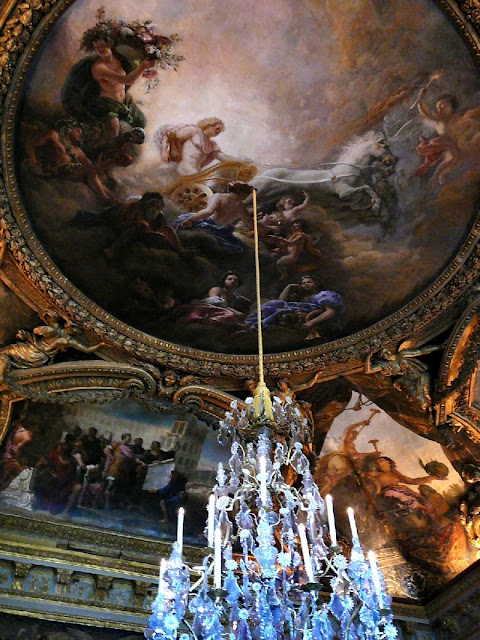Some traditions don't die.
I've often wondered that despite their $upport to the papal Roman Catholic Church (under penalty of excommunication or death), Europe's monarchies and aristocracy never "let go" of their fascination with ancient Greek, Roman, Nordic, Egyptian and pagan gods. They adorned their homes and gardens with statues of such goddesses and half man/creature mythical beings (meanwhile they wore crucifixes when they attended church mass). Did you ever notice how European palaces and mansions are full of such images?
Something else that would qualify as heresy--which was apparently pardoned by the Church--was many kings considered themselves godlike. Which is interesting, considering that kings were ordained by (got their power from) the pope, who was the self-proclaimed "spokesman" for God. Such a paradox having all those lesser gods being crowned by God's pope.
Acting as if he had his own godly powers, King Henry VIII of England made public appearances, where he commanded illnesses to leave his serfs and vassals. Later in his reign, he made England break away from the Catholic Church and form its own religion, where English monarchs were the supreme Heads of the Church.
Something else that would qualify as heresy--which was apparently pardoned by the Church--was many kings considered themselves godlike. Which is interesting, considering that kings were ordained by (got their power from) the pope, who was the self-proclaimed "spokesman" for God. Such a paradox having all those lesser gods being crowned by God's pope.
Acting as if he had his own godly powers, King Henry VIII of England made public appearances, where he commanded illnesses to leave his serfs and vassals. Later in his reign, he made England break away from the Catholic Church and form its own religion, where English monarchs were the supreme Heads of the Church.




















No comments:
Post a Comment
Don't be shy: leave your comments :)